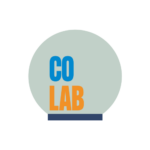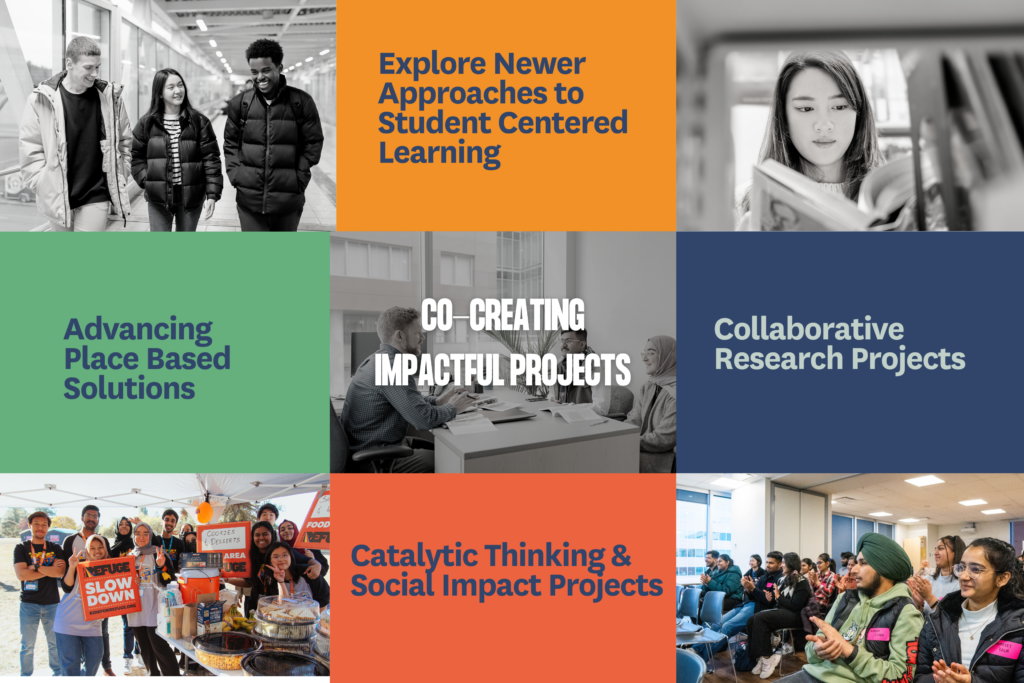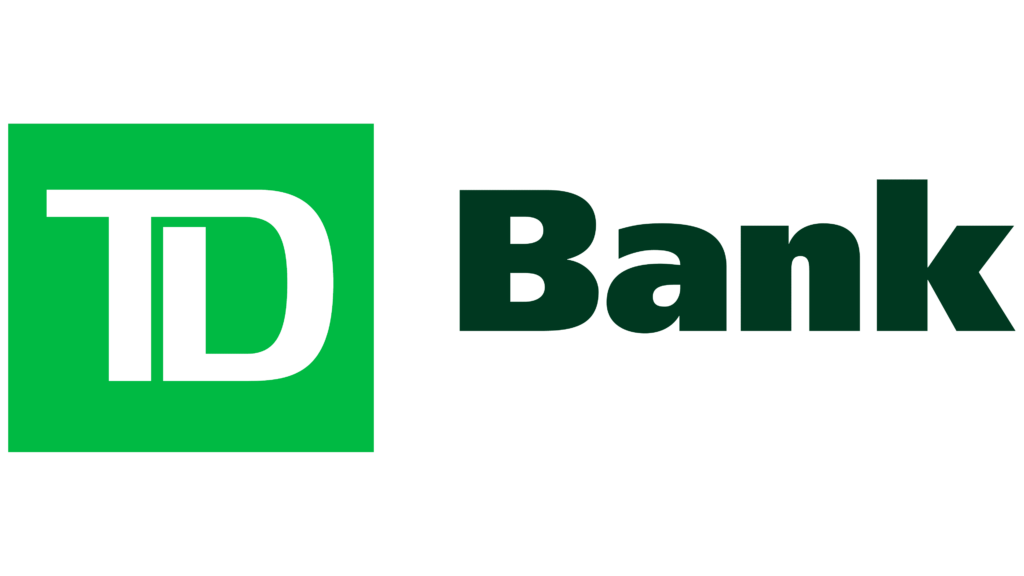Innovations in Student Centred Learning and Community Development

What is Co-LAB?
A dedicated space, resources, and support to launch multi-disciplinary projects that: 1) explore new approaches to student-centered learning and 2) empower students, instructors, staff, and alumni to take leadership roles advancing place-based solutions to social, economic and environmental challenges.

Project Categories
Empower college students and alumni to assume leadership roles in addressing social, economic, and environmental challenges in their communities.
For Who?
College staff, instructors, students, alumni, and community partners.
EXAMPLES – Project Ideas
Social development or innovation projects such as: Community Clothing Swap, Neighborhood Library, Local Food Program, Bridging Digital Divide among Elders, and more.
Collaborative projects to examine the feasibility of, or launch, social enterprises.
Collaborative projects that focus on goals from the City of Vancouver False Creek Flats Plan.
Place-making initiatives such as: Setting up a Community Garden, Creating a Mural, and more.
A multidisciplinary research setting designed to give instructors the space and resources to design, plan, and execute research projects in collaboration with students.
For Who?
College Instructors, Students and/or Alumni working together. May include community partners.
EXAMPLES – Possible Research Projects
Research projects that replicate research done elsewhere on an international student body
Research to identify new approaches to wrap-around supports that enable student learning
A project to create, implement, research, and evaluate innovative community based curricula
A space and resources for staff, instructors, and students to explore new approaches to student-centred learning*.
For who?
College Instructors, Staff, and Students working together.
EXAMPLES – Possible Innovation in Learning Projects
Working with students to explore new approaches to incorporate cultural exhibits into a course.
Work with students to experiment with new pedagogical approaches.
Identify and test the implementation of new digital tools to support student learning.
*Student Centred Learning is characterised by innovative methods of teaching which aim to promote learning in communication with teachers and other learners and which take students seriously as active participants in their own learning, fostering transferable skills such as problem-solving, critical thinking and reflective thinking. (Ref: 2015 Overview on Student-Centred Learning in Higher Education.)
Open Educational Resources (OER) are freely accessible, openly licensed materials that can be used for teaching and learning.
The OER Fund fosters accessible and inclusive learning environments by facilitating the adaptation, adoption, and integration of open educational resources within Columbia College credit courses.
By providing open access to educational materials without cost barriers, OERs ensure that all students, regardless of financial status, can access high-quality learning resources. Additionally, the flexible licensing of OERs allows educators to tailor materials to meet diverse learning needs, further enhancing accessibility and inclusivity in education.
The OER Fund is open for applications all year and offers two main types of funding:
-
Incentive Grants foster the adoption of existing OER material into a course curriculum.
-
Implementations Grants foster adaptation and creation of OER materials in the course curriculum.
More information about these Grants is available in the OER Guidelines. Please contact Faith Jones at oer@columbiacollege.ca if you have further questions about the application process.
If you are interested in leading or participating in any Co-LAB project, please sign-up by joining the Co-LAB Community Network.
While our sign-up form remains accessible throughout the year, we extend invitations to join the Co-LAB Community Network in January, May, and September.
Co-LAB Review Panel
We invite local community leaders and students to join the Co-LAB Review Panel at Columbia College. The Review Panel plays a crucial role in selecting grant recipients for various projects, such as Innovations in Learning, Faculty-Student Research Projects, and the Community Development Accelerator.
The Co-LAB Review Panel adopts a participatory approach in its selection process, ensuring that individuals impacted by the decisions are included.
Primary objectives of the review panel are:
- Assist in making funding decisions by bringing together community representatives and project applicants.
- Provide support and guidance to funded projects.
- Share insights and learnings on participatory grantmaking to advance this form of grantmaking.
- Document the processes, recommendations, and outcomes of the Panel for stakeholders’ reference.
The panel will convene to listen to presentations from the applicants, followed by a roundtable discussion facilitated by the Executive Director. Based on the panel’s discussion and support, projects will be recommended for funding .
If you are interested in joining the Co-LAB Review Panel, please fill out the form here. Once your name is added to the roster, students will be selected for our inaugural Co-LAB reviewers for a 12 month term via lottery. Community member participants will be selected based on experience studying, volunteering, or working in community development in a lower mainland community.
*Financial support is available for reviewers.
Sign-up to Join the Co-LAB Review Panel
Thank you to our sponsor!


